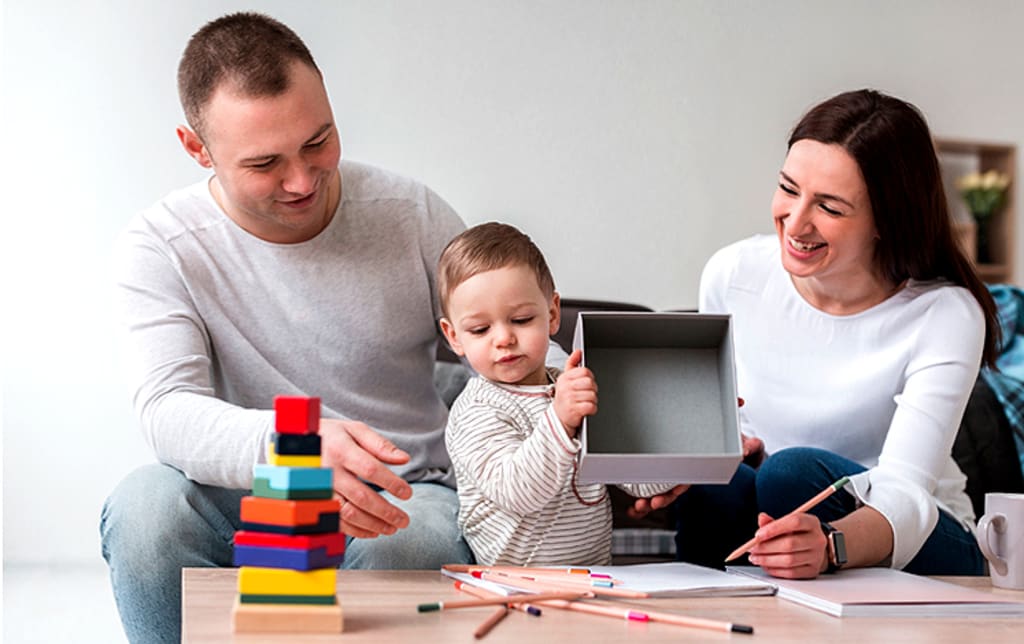Child Development And Parenting.
Nurturing The Future Generation.

Child development is a fascinating journey that shapes the foundation of a person's physical, cognitive, emotional and social well being. As parents, caregivers and educators understanding child psychology and the various developmental milestones is essential in providing the best possible environment for a child's growth and learning. In this article, we will explore the stages of child development, key milestones and effective parenting strategies to support children in reaching their full potential.
Stages of Child Development
Child development is commonly divided into four main stages:
Infancy (0-2 years): This stage is characterized by rapid growth and development. Infants learn to roll over, sit, crawl and eventually walk. They also develop language skills through babbling and eventually speaking their first words. At this stage, the parent child bond and early attachment play a crucial role in shaping the child's emotional development.
Early Childhood (3-6 years): During early childhood, children's cognitive abilities expand rapidly. They develop a sense of self, engage in imaginative play and begin to understand abstract concepts. Socially, they learn to share, cooperate and interact with peers, building the foundation for future relationships.
Middle Childhood (7-11 years): Middle childhood is characterized by increased independence and a deeper understanding of social rules and norms. Children develop more complex problem solving skills and engage in more structured and organized play. They also form stronger friendships and seek validation from peers.
Adolescence (12-18 years): Adolescence is a period of significant physical, emotional and social changes. Teens seek autonomy, develop a stronger sense of identity and grapple with complex emotions. Peer relationships become paramount and adolescents start to form their values and beliefs.
Key Developmental Milestones
Throughout these stages, children achieve significant developmental milestones that vary across domains:
Gross and Fine Motor Skills: Milestones include rolling over, sitting, crawling, walking, running and eventually mastering more refined movements like writing and playing instruments.
Language Development: Milestones encompass babbling, saying first words, forming sentences and developing reading and writing skills.
Cognitive Abilities: Children progress from basic sensory and motor experiences to abstract thinking, problem solving and critical reasoning.
Social and Emotional Development: Key milestones involve developing early attachments, understanding and expressing emotions, forming friendships and navigating social situations.
Effective Parenting Strategies
Create a Nurturing Environment: Provide a secure and loving environment that fosters a strong parent child bond. Be responsive to the child's needs, offer comfort and express affection.
Set Clear and Consistent Boundaries: Establishing clear rules and expectations helps children understand behavioral limits and develop self discipline.
Encourage Exploration and Play: Support children's curiosity and creativity by providing opportunities for free play and exploration. Engage in play with your child to strengthen the parent child relationship.
Foster Communication: Listen actively to your child's thoughts and feelings. Encourage open and honest communication allowing them to express themselves without judgment.
Be a Positive Role Model: Children learn by observing their parents. Demonstrate positive behavior, problem solving and effective communication.
Promote Independence: As children grow, gradually encourage them to take on age appropriate responsibilities and make decisions building their self confidence.
Encourage Resilience: Support children in facing challenges and setbacks, helping them build resilience and problem solving skills.
Recognize and Praise Efforts: Acknowledge and praise your child's efforts and accomplishments to boost their self esteem and motivation to learn.
Conclusion
Child development is a dynamic process that requires a nurturing and supportive environment to thrive. Understanding child psychology and developmental milestones empowers parents, caregivers and educators to provide appropriate guidance and support at each stage. By fostering a loving and nurturing environment, setting clear boundaries and encouraging exploration and communication, parents can effectively promote their child's physical, cognitive, emotional and social development. Remember, every child is unique and by celebrating their individual strengths and encouraging their growth, we help shape a bright and promising future for the next generation.
About the Creator
Naeem Shahzad
Naeem Shahzad is an inventive, unique, aspiring & highly driven health & fitness, finance & tech content creator who decided to devote his skills to the benefits of men & women. He stands for high quality, unique & ground breaking content.






Comments
There are no comments for this story
Be the first to respond and start the conversation.